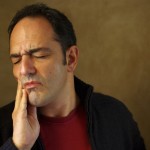
A group of Scottish Specialty Registrars in Special Care Dentistry look at a recent review of available measurement tools for assessing oral health and orofacial pain in dependent adults, which can be used by the non-dental caregivers. Nine tools were identified and despite a lack of comprehensive testing a number demonstrate reliability and validity.
[read the full story...]
